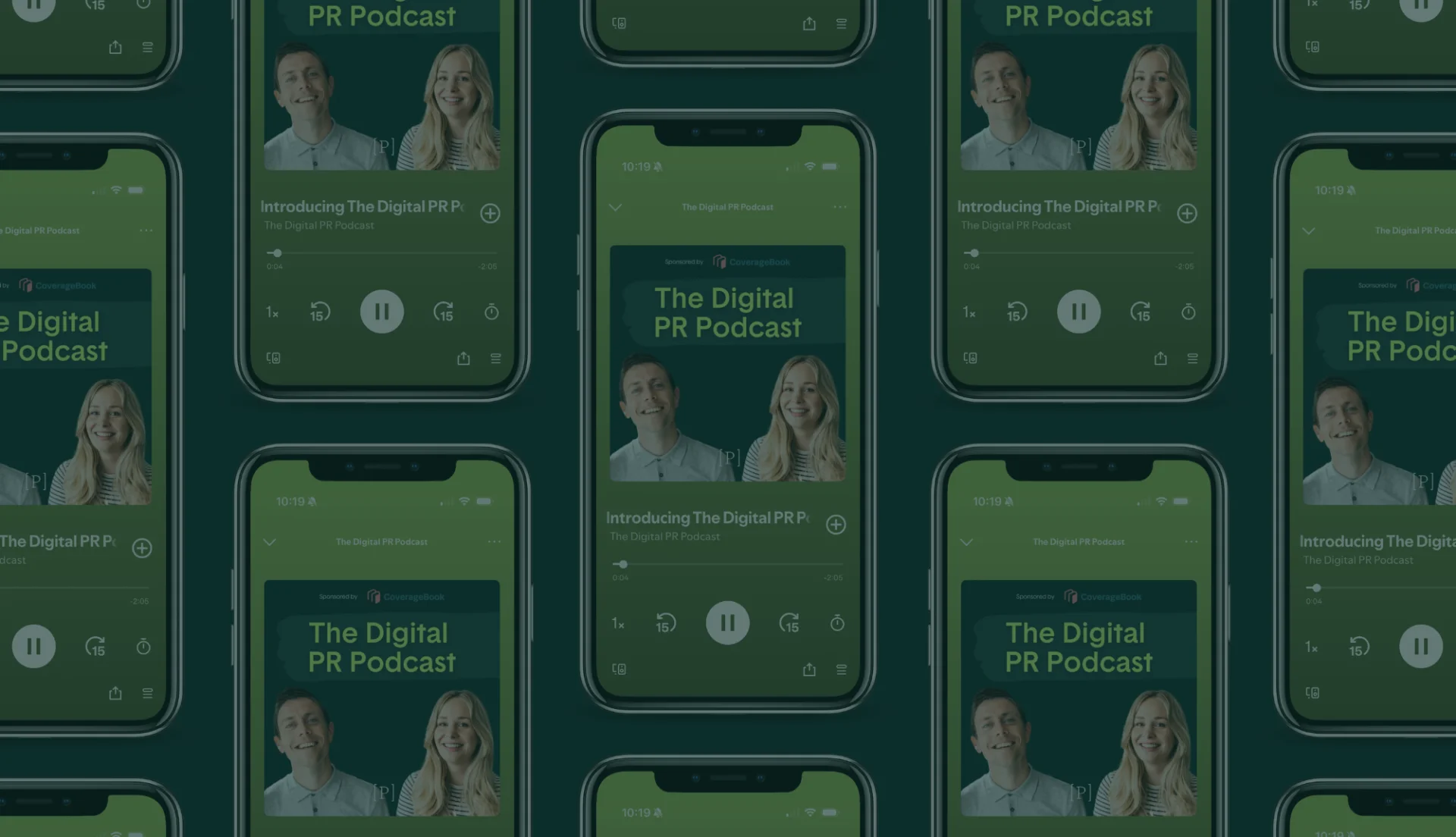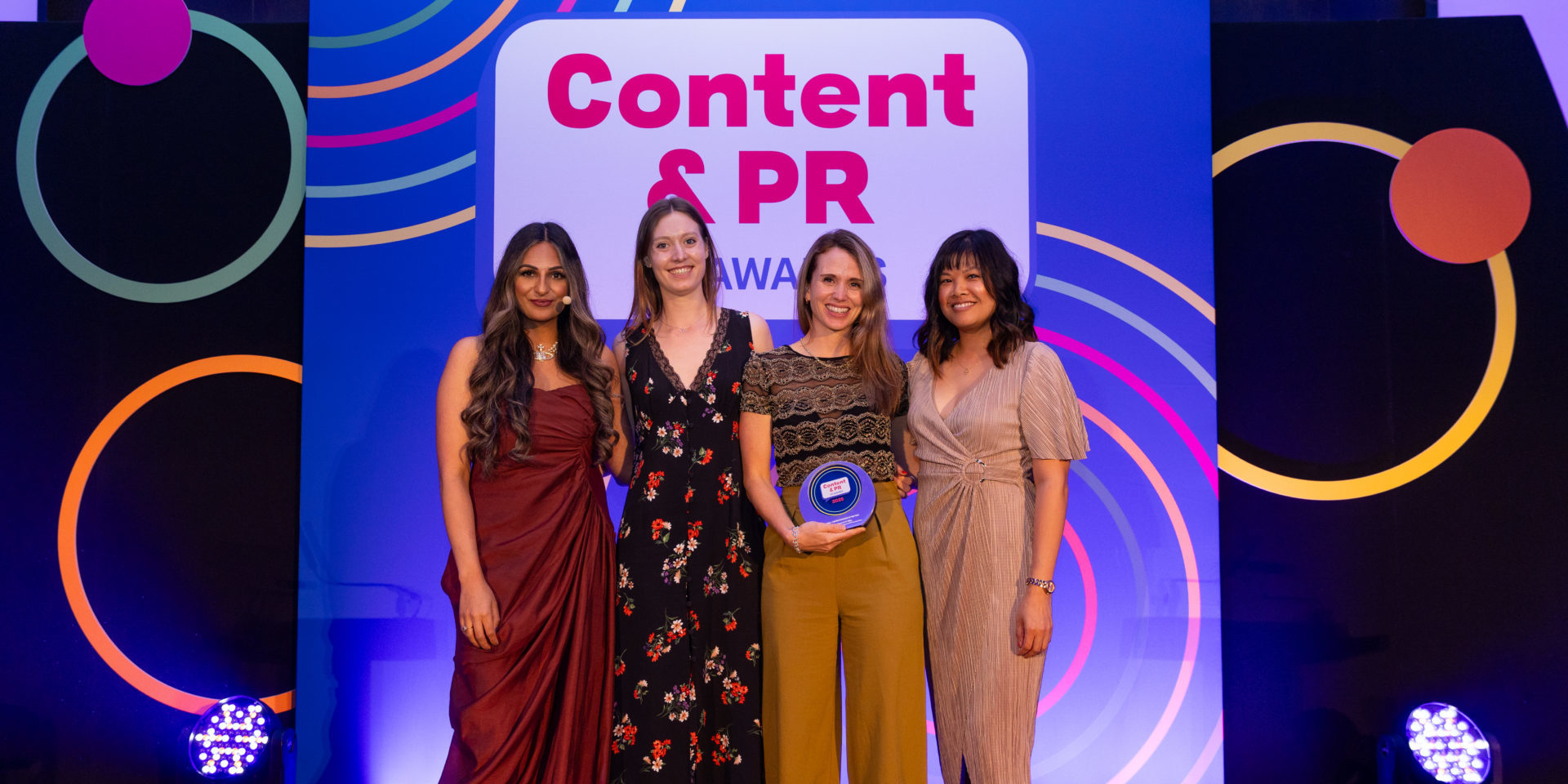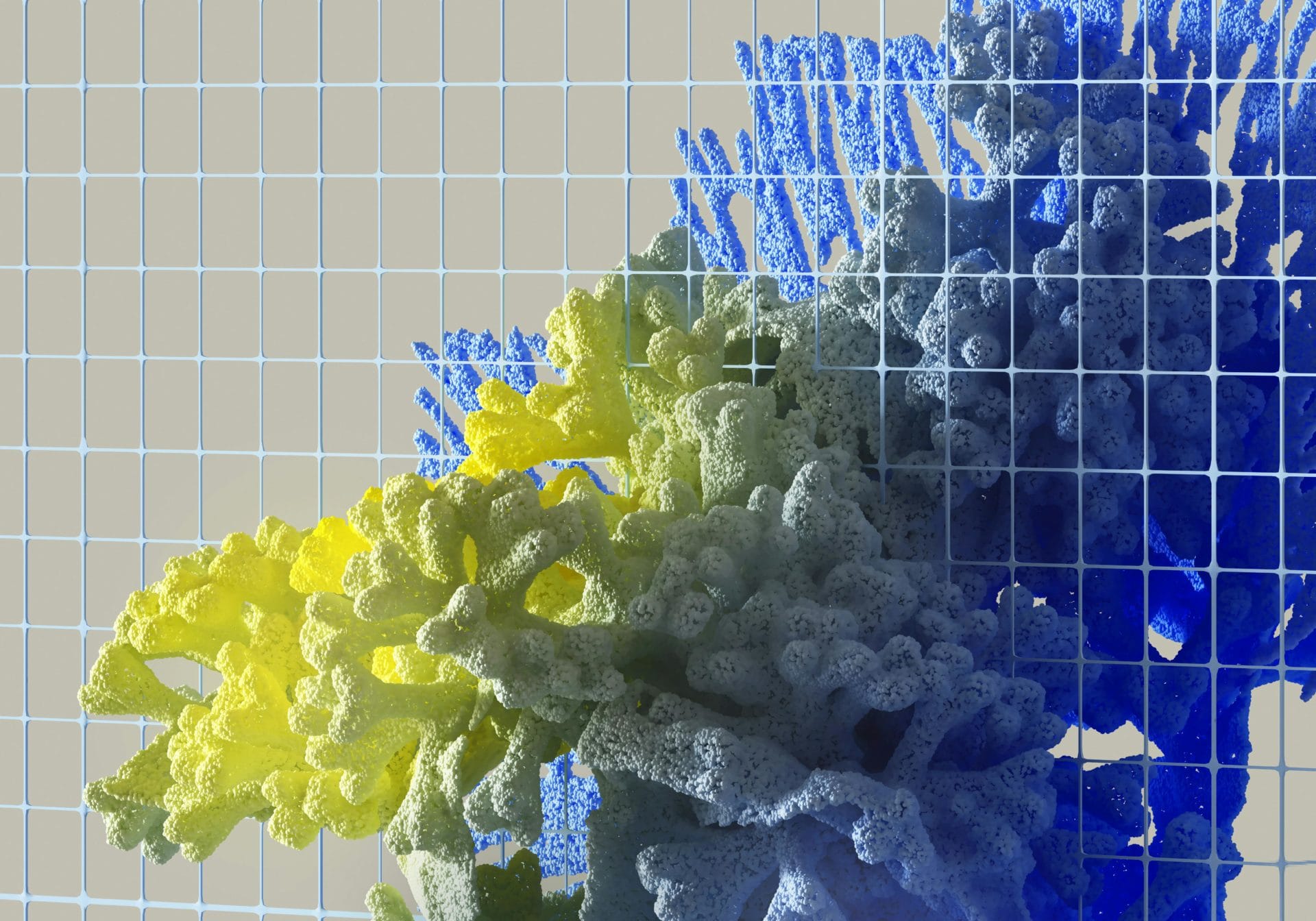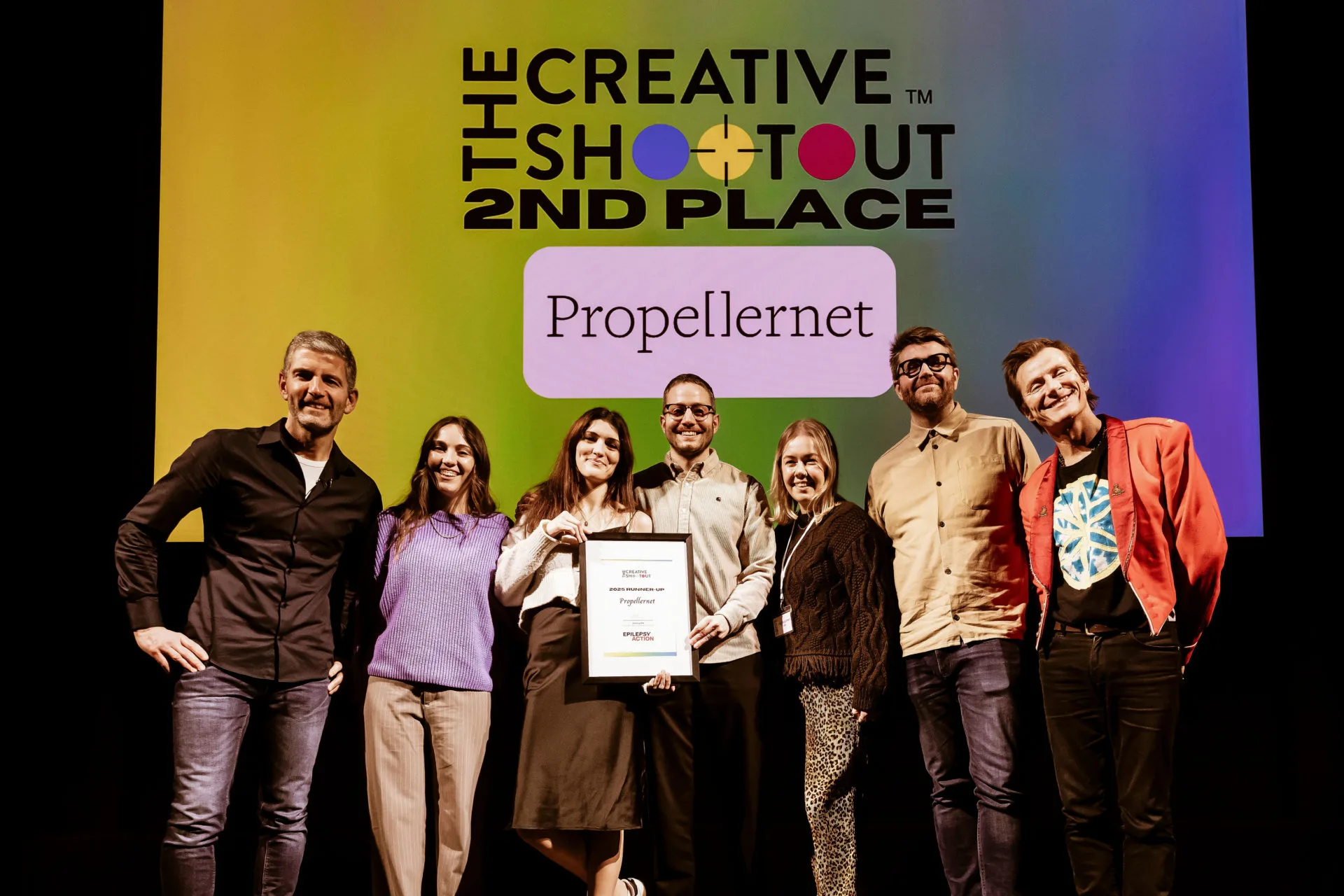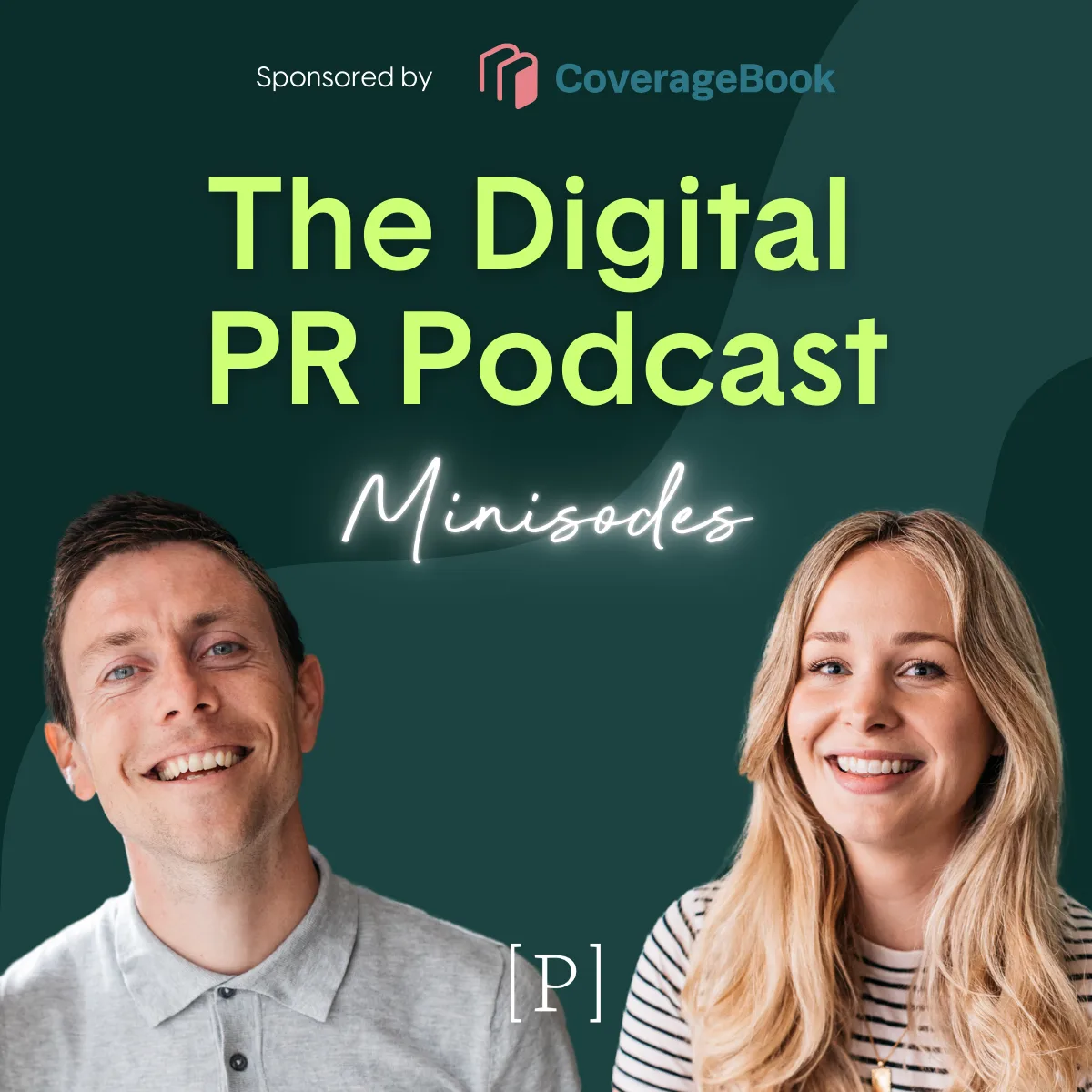
In this minisode of the Digital PR Podcast, I had the pleasure of speaking with Raquel from our digital PR team at Propellernet. We delved into the intriguing topic of AI and its implications for digital PR professionals. Raquel shared her unique journey from law school and economics to discovering her passion for marketing during the pandemic. We discussed the rapid evolution of technology and how embracing AI is essential for staying relevant in our industry. Raquel highlighted the benefits of using tools like ChatGPT for data organisation and enhancing our writing, emphasising that AI should be seen as a supportive resource rather than a threat to our jobs. While acknowledging the potential risks of over-reliance on AI, Raquel reassured listeners that the human touch remains irreplaceable. We explored the future of digital PR, predicting a shift towards more creative and unique campaigns, as well as the growing importance of creativity in hiring processes. For those new to AI, Raquel encouraged experimentation and learning through practical tasks, as well as seeking out resources on social media and platforms like LinkedIn. She emphasised that the key to mastering AI lies in understanding how to craft effective prompts.
Have a listen or read the full AI transcript below.
Louise Parker:
Hi, it’s Louise here from the Digital PR Podcast. We have something new for you this season, not just a new season of podcast episodes, but mini episodes as well. The guests are all from our very own Digital PR team at Propellernet, and we’re just gonna have quick little chats about the topics that are interesting us at the moment. Hope you enjoy. Hi Raquel, welcome to the Minisode. Thanks for coming on. You’re here to talk about AI and whether digital PRs should be afraid of AI, big scary AI. Before we jump into that, do you want to give a little overview about your career so far?
Raquel Pinto:
Of course. So I’m Raquel. I’ve been working at PropellerNet, I think it’s coming up in two years. The time flew by really, really fast, but I actually don’t come from a traditional marketing background at all. I came from law school and before that I was studying economics. So I kind of fell into marketing during the pandemic and I ended up really loving it. And I think I’m going to do marketing till my career ends. That’s it. We’re done.
Louise Parker:
I feel like that’s the ultimate fallen into it. That’s quite the change, but amazing that you’ve ended up with us. I mean, I feel, I also feel like you’re going to stay in marketing because you seem so engaged with like the industry. If anyone follows Raquel on LinkedIn, you’ll see that she’s always posting really insightful and interesting things around both TikTok, but also now a lot of stuff around AI. You’re a big positive proponent of it, I would say, and you think it’s a good thing, though there are a lot of people who, like I said, are a bit kind of nervy about it. But for you, what was it about AI that kind of got you so interested in it?
Raquel Pinto:
I think a big part of it is because when I was born, like there were no computers, there was no phones anywhere. Right. And then I grew up and then we have the internet on our phones and then the internet is like everywhere. And I feel like technology has changed so fast in what, what is it like two decades? Um, that I had no choice, but to accept it. Even if you didn’t like flip phones, you have no choice. Now you have a computer in your home. So it’s kind of like one of those things where if you don’t accept it, It’s going to happen anyway. You can not like it. You can choose not to use it, but kids are born with tablets on their hands. They’ll know what to do with AI. So a big part of me was like, whether I like it or not, I’m going to end up using it. So I might as well just start now.
Louise Parker:
That’s fair enough. It’s like an adapt or die kind of mentality, but you know, maybe not quite as serious. Obviously we both work in digital PR. Specifically for our industry, what do you think are like the best ways that we can use AI in our day-to-day work and are there any particular tools that you would recommend or really like?
Raquel Pinto:
I am forever a fan of ChatGPT, at least so far, because the industry just changed so fast that I’m saying ChatGPT right now, but tomorrow might be a new tool that I’m like, Oh, I’m loving this. But I definitely think for PRs, it’s one of the best tools out there currently, both from a data point, so in as PRs, a lot of our campaigns are database and the fact that ChatGPT does have internet connection. It can read Google docs. It can read Google sheets. It can organise data. So, so fast and make tasks that would take us like an hour to pull the data together, to organise it in like five minutes, max, as long as you have a good prompt, that is super, super helpful. And then on the other side of it, in terms of writing. A lot of our job as PRs still is writing, whether that’s the way we communicate with clients and make our ideas really persuasive and something that clients are like, understand our goal and how it benefits them. Having AI come in and be like, okay, we can tune this up a bit. We can bring this into one of the client’s key points, something that we haven’t thought of before. It’s there to help. And then the way we present campaigns, the way we show them to journalists and make them really interesting and entertaining and just really pushing things that we tend to in our agencies and in our campaigns sometimes get really stuck on the way we do things and having this sort of intelligence come in and be like actually you could spice this up a little bit or you could think of this different angle that we might have not thought of before. It’s incredibly helpful and that we have this in our fingertips. Why would we not use it, especially SPRs, if it can be that helpful?
Louise Parker:
Yeah, for sure. I don’t want to obviously dwell on negatives because it is nice to talk about the positive stuff, but there are a lot of people who are concerned about maybe the fact that they might not have a job anymore, or they might be concerned about people using AI and the quality of work not being as good. From your perspective, are there any risks to consider when using AI in our kind of digital PR world?
Raquel Pinto:
I think there are plenty of risks, not just for digital PR, but for industries in general. But I think one of the dangers that I see happening, especially for new people coming into the industry and thinking, oh, I can just use AI and make my way through it. One of the biggest risks and dangers that I see is that you become so reliant on it that you forget that you are a person. When clients come to us, they ask us questions. It’s our experience in the industry that is able to discern, is this the right question that they’re asking? Can we interpret this? Are they asking something entirely different? And it is us as humans to say, actually, my experience here tells me that what the client actually wants is something a little bit different. That is the human nuance. We can’t just rely on AI to provide that, to provide that insight. And the other side of it is, it is digital PR. Creativity is sort of the benchmark and the thing that propels us forward. AI is here to help with the repetitive tasks, the data tasks, to give us more time for those creative tasks. And that is irreplaceable. There is so far no AI that can give you unique ideas and unique insights and something entirely creative. That is always going to come up to us. So there’s always that danger. And I know there’s plenty of people that are going to talk about copyright and like the legal dangers of it, but I think right now the conversation needs to be great let’s use AI, but can we not forget that we are humans that there is nuances there that we should interpret client briefs in, we can always push them differently as humans. And that is up to us. That is not up to AI.
Louise Parker:
I think it’s going to be reassuring for people. Because like you said, it’s there to help. But ultimately, a lot of the expertise that we bring are things that only we as humans can bring with our experience. So I think that’s a good message to have a nice, positive, non-scary one.
Raquel Pinto:
But it is true, especially when you talk to people like older in the industry. Obviously, somebody that’s been in the industry for 20 years is going to have more experience in certain areas than someone new, like me, who’s been in the industry, well, maybe like three, four or five years. And the same thing goes for AI. AI is like a baby. We’re just teaching it.
Louise Parker:
Oh, that’s really cute. You’ve already mentioned how quick things are developing. What do you think the future has in store for us as PRs using AI with integrations that we might be retrialing and things like that? Where do you see things going in the future?
Raquel Pinto:
I think from a creative side, we’re definitely going to start seeing the death of the boring campaign. Those campaigns that journalists can basically do themselves. We’re going to see a lot of agencies that maybe use very boring ideas or basic ideas because they’re safe, sort of dwindle out and realise the profits not coming in on their side. Because journalists can do it themselves, AI can do it itself. There is no point in having those campaigns, they’re just not unique enough. And so I definitely see the death of the boring campaign, but then also the sort of the rise of unique data sources and data interpretations and very different methodologies in a good way. Because that’s the fun of it, the fun of the evolution of it. And then at the same time, I definitely think agencies are going to start prioritising the creativity and the cunningness of us humans in the hiring process. It’s not just going to be, how good can you pull data from a data sheet? It’s going to be, okay, how creative, like here’s the brief, how much out there can you get within the constraints, obviously. And then I think overall, there’s going to be sort of this overhaul of the SEO processes and the effects on like campaigns and benchmarks clients have. When it comes to digital PR because that entire process is going to change now with AI giving us the answers faster. So, even the goals that we have with campaigns are going to change I think change is going to come inevitably. There’s no way with other way around it. So we just have to adapt to it really.
Louise Parker:
That’s so interesting what you said about how different skills might be valued more, because that’s so true. Because I would say for you, you are like our most up with AI person, the most kind of like tuned into it. You’re just the person I come to whenever I have an AI question or want to know what’s going on. And I feel like in future interviews for people who come and join the team, like, If someone says that, Oh, I’m actually really good at like mid journey prompts and stuff like that. Like I really know how to streamline this process using ChatGPT. That’s like a whole new kind of thing, which is going to be great for you to get hired. So, um, whereas actually potentially maybe like you said, the data pulling and things like that are going to be something that actually you don’t need to do as a human anymore. You just know, you need to know how to use the right tools. Um, so yeah, that’s really, really interesting.
Raquel Pinto:
I think that the PR industry in general, like what 10 years ago there was no, there was digital PR but it’s not like we know it now and like the same way the internet evolved what we do in the PR industry, AI is going to change the way we do digital PR. Lord knows, there might be, we might start hiring AI experts on the digital PR team.
Louise Parker:
Yeah, that’s, I mean, yeah, people have data, you know, data journalists and things like that within their PR team. It might be that that is more towards people who are really into being able to use AI in productive ways. For people who haven’t dabbled yet and haven’t had a go at like ChatGPT, or maybe they haven’t opened it and they got scared and they shut it again. For digital PRs and marketers in general, where would you suggest people start if they want to get to grips with it? Is there anything they should be reading or watching, or is it just getting involved and having a go?
Raquel Pinto:
I definitely think having a go is always the way to go. Like you don’t learn unless you do it with everything in life, but having sort of a general idea of what prompting is, how prompts need to be built really, really helps. And then start with the little tasks. Start with the tasks that seem really boring to you because you’re going to see an immediate return on investment. You’re going to be like, yes, I spent maybe three minutes writing this prompt, but the task is done. The task that would have taken me 30 minutes is done. So the moment you start seeing that ROI, you’re going to start being like, oh, actually, I can start seeing how AI might be helpful in other areas. But definitely start by understanding what prompts are, how to use them, and how to make something like ChatGPT as helpful for you in those daily day tasks that are more time consuming and not as not something as enjoyable for you. And then you see the eye wearing that and you get excited and become an AI nerd.
Louise Parker:
And for people who want to know, OK, well, where do I start with writing a prompt? Where do you think is the best place? Is it like other people on TikTok who talk about that? Is it Twitter? Is it where would you even get that information of how to do a prompt?
Raquel Pinto:
The way I learned it, a lot of prompting came from just doing my own research, coming across it on Instagram, different Instagram accounts. I think it’s ChatGPT Tricks, but I don’t want to say that because I don’t know if that’s the right name, but a lot from Instagram accounts, from LinkedIn, from people on LinkedIn who are AI experts, who have done AI for more years than I know, and they really share so much information. The internet is there at your fingertips explaining so much to you. to the point where you can even go to Cha GPT and ask it, like, I’m trying to learn how to prompt for AI, can you give me? And it’s really simple to ask. You’re asking AI to teach you about AI. But that is how I learned, like, how to prompt for mid-journey, for example, by using Chat GPT, which is like this whole, like, ouroboros of idiocy. But you’re just like, okay, if you can give me the answers I need, that’s awesome.
Louise Parker:
That’s genius. This is why we’ve had you on. It’s that kind of thinking. Thank you so much Raquel for going through this with us. If anyone wants to follow more insights from Raquel then find her on LinkedIn because she posts really interesting stuff on there. Thank you for listening and do follow the Digital PR Podcast because you’ll be told when we’ve got more minisodes and big episodes coming up. Thanks!
